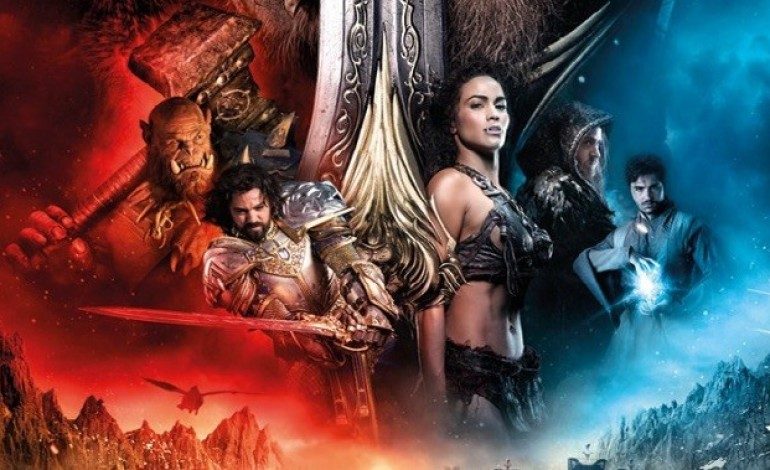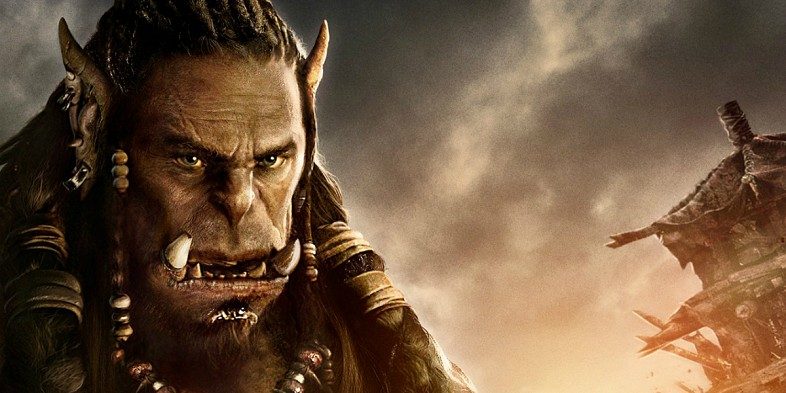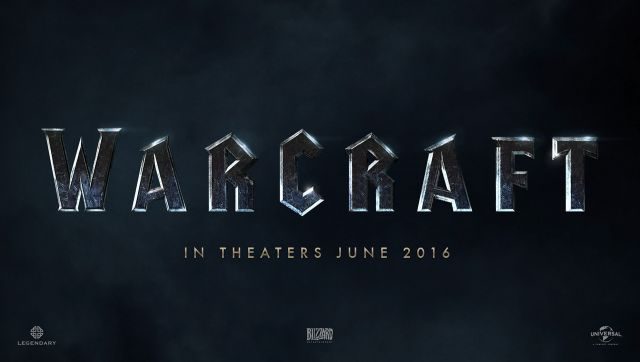

The Benefit of the Doubt is a segment where I look at movies that got disastrous reviews and ask “Was it really that bad?” With a horrendous 26% (4.07/10 average rating) on Rotten Tomatoes, the long-awaited (I guess…) video game adaptation Warcraft (now called Warcraft: The Beginning apparently) is easily one of the worst reviewed movies of the year. But was it really the catastrophe that most critics have painted it as? Time to give Warcraft “the Benefit of the Doubt,” and look at what worked (as well as what didn’t). Extensive spoilers within. Furthermore, I have never played the game, so please forgive my ignorance as to its lore and canon. Or you can see me as a representative viewer.
I’m sure everyone has had times when you’re watching a movie, something major appears to have happened in the blink of an eye and you ask “Did I nod off?” So you rewind the movie, sometimes twice, and even put the time code on to figure out – ‘was it me or was it the movie?’ More often than not, it’s the movie. (Then you go to Wikipedia to pick up on everything you missed.) And perhaps no movie better exemplifies this phenomenon than Warcraft.
Warcraft is a movie for film fans…insofar as the only way you can understand this movie is if you’ve seen enough movies to know all the beats and bridges they left out, which is most of them. Some examples. During the final battle, Dominic Cooper’s human King Llane (it’s fantasy, so it’s silly just to name him Lane or Layne) invites Paula Patton’s comically cheap looking half-breed Garona to join him on his horse and defeat the orcs together. It implies an actual storyline concerning Llane’s prejudice towards other species, but it’s never fully fleshed out in the movie; it’s clearly the culmination of the human king’s character arc, 90% of which was seemingly left on the cutting room floor. When main human soldier Lothar’s (Travis Fimmel) son dies, it’s filmed with a sense of emotional relevance…but we met the character at most twice before that scene and he was barely a glorified extra. When pensive orc Durotan (Toby Kebbell, Dr. Doom in the new Fantastic Four movie and soon to continue his horrible blockbuster streak with the Ben-Hur remake) tries to instill pride in his goblin-y newborn by telling him he is the descendant of an unbroken line of great Chieftains, it’s clear that “Chieftain” means something very significant in orc culture…but what? based on the reverent cadence, I can fill in the blanks myself, the movie doesn’t establish why it’s so poignant. The list goes on and on.
Of course, that isn’t Warcraft‘s only problem, but it’s the one that stuck out most to me. There’s a whole gamut of issues that might better strike your fancy as its primary failure. It might be that this movie tries to be a genuine ensemble piece, which is hard enough for a Earth-bound movie to pull off in a relatively paltry 2-hour running time, let alone one that requires us to understand all the rules and intricacies of not one but two fantasy universes. The characters are poorly drawn as it is, so without anyone – human or orc – to focus on, it becomes messy; more a collection of random clips you’ll watch on YouTube than an actual feature. The film even does the disservice by featuring other species in the human realm (e.g. High Elves and Dwarfs), but they’re essentially cameos and do nothing of note. This only adds to the overwhelming sense of confusion and the feeling that a lot of information is being withheld from us. Plus there’s all the other general negative things you can say about pretty much any major tentpole and franchise starters – muddled action sequences, poor character motivations, bad acting, self seriousness/lack of humor, etc.
Unfortunately, I don’t have many good things to say about Warcraft. I like keeping an open mind when watching any movie, especially those selected for The Benefit of the Doubt. It’s easy enough to follow a critical-herd mentality of bashing, but that’s not the point of this segment. It was created to take an alternative view towards despised films – to guess what the filmmakers wanted to do, even if they couldn’t accomplish it; to figure out where/if the studio meddled to a point of incoherence; or to simply give into the empty-yet-enjoyable spectacle of a mindless, big budget film.
Disappointingly, Warcraft lacks these excuses, and the good stuff is few and far between. Some of the set design/costuming is good, and it’s hard to fault the effects (even if it’s hard to outright praise them due to pretty much every movie having great effects). I thought Ben Schnetzer as apprentice magician Khadgar was the only actor who stood out, and he could have been a quality protagonist in the classic mold. I liked the concept that orcs weren’t just mindless killing monsters as presented through Durotan… except at the end of the movie, they were essentially just mindless killing monsters. I want to believe that director and co-writer Duncan Jones (Moon, Source Code) and the rest of the people who toiled away at this film developed a rich, intricate universe of backstories for both characters and species … but for various reasons none of it made it to the screen. It’s actually not all that hard an angle to buy into – there’s so many elements left unexplained and things they clearly assume we already know that it goes beyond amateurish screenwriting and down to bad editing.
But with rare exception, I can’t credit a movie for what it may have had (even with rumors of a director’s cut at least 40 minutes longer). Unlike something like Josh Trank’s Fantastic Four (another The Benefit of the Doubt subject) where I could at least respect his completely misguided decision to make one of comic book’s most renowned properties a body horror film, at best Warcraft would be a decent-but-unexceptional fantasy epic. Nowhere close to The Lord of the Rings or Game of Thrones but somewhere in the realm of… come to think of it, once you get out of Tolkienville, you’ve pretty much dropped into the realm of the Thora Birch/Marlon Wayans/Jeremy Irons Dungeons and Dragons movie from 2000. The Golden Compass?
Surprisingly, Warcraft actually has become a hit thanks to an apparently less discerning foreign box office, particularly in China where it had a record-breaking opening weekend. Due to its financial accomplishments, sequels are now practically a given – though Uwe Boll’s similarly video game-based In The Name of the King also received sequels, so it’s far from a indicator of genuine worth. Now that the studios know that critical support (read: actual quality) is almost certainly irrelevant to the end product, it would certainly behoove them to go cheaper. The potential franchise lost its biggest actor with the death of Dominic Cooper’s character, best known as the young Howard Stark and currently starring in Preacher, which coincidentally co-stars Ruth Negga, who plays Llane’s Queen in this film. And why hire a critically acclaimed writer-director like Duncan Jones when all his novel sensibilities and skills are going to be lost amidst a glut of nonsense? A gun-for-hire behind the camera and a sweatshop of computer programmers can accomplish essentially the same thing for far less money.
So maybe Warcraft is a win-win. For audiences who liked this movie, it will be easier than ever to crank these out, now that a baseline has been established. For fans of Duncan Jones, he will probably go back to smaller, more personal movies – or maybe even get to develop larger movies where he has more creative control. For fans of the game, it’s still there to wallow away the hours on. And for none of the above, you can just go about your lives as though nothing happened.


